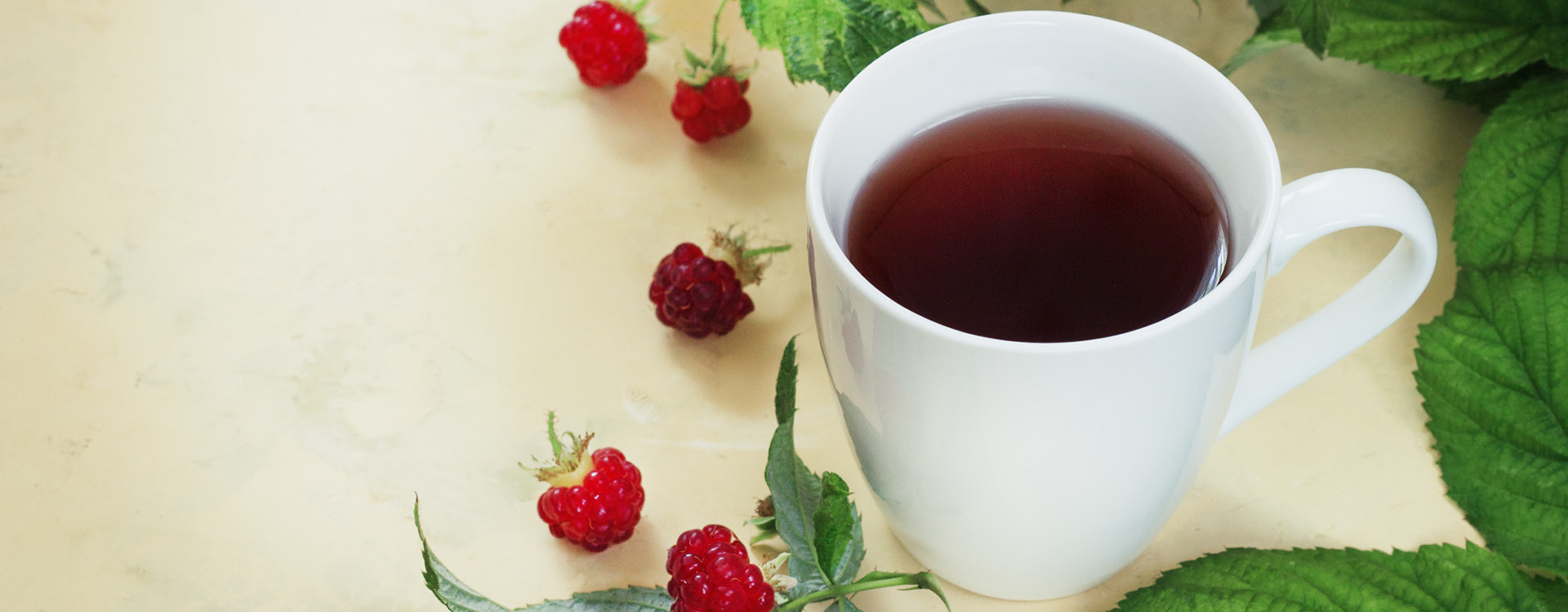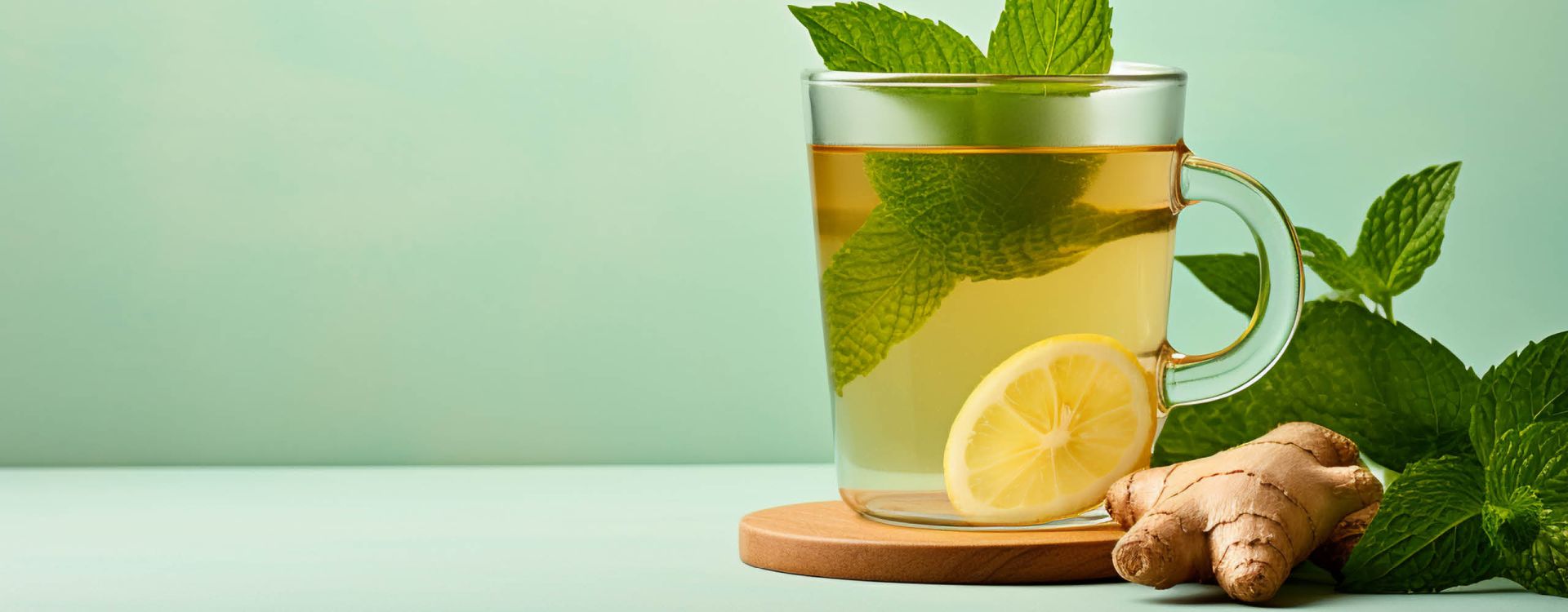Pregnancy is a time when every choice you make can have a profound impact on your health and the health of your baby. This includes what you eat and drink. For many, chai tea is a beloved and comforting beverage, but is it safe to enjoy during pregnancy?
In this article, we'll explore the ins and outs of chai tea during pregnancy, including its benefits, potential risks, and best practices
What Is Chai Tea?
Chai tea is a spiced tea that originated in India. It typically contains black tea, milk, and an aromatic blend of spices like cinnamon, cardamom, ginger, and cloves. The word "chai" itself simply means "tea" in many parts of the world.
Chai tea is renowned for its rich and warming flavors, making it a popular choice for those seeking a comforting and flavorful beverage.
Caffeine and Pregnancy Overview
During pregnancy, one crucial consideration when it comes to beverages like chai tea is caffeine. Caffeine is a natural stimulant found in various foods and drinks, including coffee, tea, and some soft drinks.
The general guideline for caffeine during pregnancy is that moderate consumption (200mg) is typically safe. However, excessive caffeine intake should be avoided due to potential associated risks.
Is Chai Tea Safe During Pregnancy?
Chai tea can be enjoyed during pregnancy with some considerations. While it offers potential benefits, including antioxidants and soothing spices, it also contains caffeine. To ensure safety, limit caffeine intake, explore caffeine-free options, and watch for spice sensitivities.
As you can see, the answer is a bit nuanced, but let's address the burning question with some benefits and risks and make our conclusion from there.
Benefits of Drinking Chai Tea While Pregnant
Chai tea offers several potential benefits when enjoyed in moderation during pregnancy. Here are a few advantages:
1. Antioxidant Properties
Chai tea contains a variety of spices, each of which is rich in antioxidants. Antioxidants help combat oxidative stress and may support overall health during pregnancy [*].
2. Soothes Nausea
Pregnancy can come with a range of symptoms, from morning sickness to fatigue. Chai tea's aromatic spices, particularly ginger and cardamom, are known for their ability to soothe digestive discomfort and provide a sense of comfort and relaxation [*].
3. Boosts Heart Health
Chai tea ingredients contribute to heart health. Black tea's flavonoids prevent arterial plaque buildup, reducing stress on the heart. Additionally, cinnamon aids cardiovascular health by treating diseases and reducing harmful cholesterol [*].
4. Improves Digestion
Chai tea enhances digestion and alleviates stomach issues. Studies reveal black tea positively affects digestion, preventing gastrointestinal troubles. Ginger acts as a potent digestive aid, improving symptoms and promoting proper digestive system function. Cardamom also offers digestive benefits [*].
5. Increases Energy and Alertness
For an energizing boost without jitters, black tea, like chai, contains a moderate amount of caffeine. Paired with l-theanine, it enhances focus and alertness, making it an ideal morning or daytime beverage [*].
6. Reduces Inflammation
Chai's ingredients like black tea, ginger, cinnamon, and cardamom have anti-inflammatory properties. They help alleviate muscle soreness, and chronic pain and may prevent inflammatory conditions like arthritis and autoimmune disorders [*].
7. Fights Off Colds
Chai's components, including catechins in black tea, ginger, cinnamon, and cardamom, possess antiviral, and antimicrobial properties. This makes chai tea a comforting choice during cold and flu seasons, potentially aiding in illness prevention [*][*]. Ginger's antibacterial properties and black tea's catechins help fend off pathogens, reducing the risk of viral infections [*].
8. Soothes Headaches
With moderate caffeine, black tea can soothe minor headaches by constricting blood vessels. It may enhance the effectiveness of pain medications. However, consume caffeine sparingly, as excessive black tea intake can lead to headaches [*].
9. Good for Your Brain
Preliminary studies indicate that cinnamon enhances cognition, reducing cognitive impairment. Ginger also improves cognitive function, potentially increasing concentration, focus, and energy levels [*][*].
10. Soothes Sore Throats
Warm chai tea with antimicrobial and anti-inflammatory properties from ingredients like black tea, ginger, cinnamon, cardamom, and cloves can help soothe sore throats effectively.
Risks of Drinking Chai Tea During Pregnancy
While chai tea offers some potential benefits, it also comes with certain risks and concerns during pregnancy:
1. Caffeine Content
Most chai tea recipes include black tea as a base, which contains caffeine. Excessive caffeine intake during pregnancy can have adverse effects, including an increased risk of preterm birth and low birth weight. To mitigate these risks, it's essential to limit your caffeine intake and stay within the recommended daily limit, usually around 200 milligrams of caffeine per day [*].
2. Spices and Sensitivity
The spices in chai tea can sometimes be too intense for individuals who are not used to consuming spicy foods. If you have a sensitive stomach during pregnancy, the spices in chai tea may not agree with you.
3. Sleep Disturbances
Too much caffeine can cause an interruption in sleep. It is recommended to avoid caffeine 8 hours before sleep to avoid sleep disturbance [*].
4. Heartburn
If you suffer from GERD or experience heartburn after consuming caffeine, you may want to avoid acidic drinks like Chai Tea and other caffeinated beverages [*]. Adding milk may reduce this risk [*].
What About Chai Tea Lattes?
Chai tea lattes have become increasingly popular, especially in coffee shops. They are made by combining chai tea concentrate with steamed milk.
When it comes to pregnancy, the same guidelines apply to chai tea lattes. Pay attention to the caffeine content, and consider the potential sugar and calorie content if you're watching your diet during pregnancy.
Pregnancy-Safe Chai Tea Alternatives
If you're looking for pregnancy-safe alternatives to traditional chai tea, there are several options to consider. These alternatives can offer a similar flavor and comfort without the potential risks associated with caffeine or certain spices.
-
Decaffeinated chai tea: Opt for decaffeinated chai tea. Decaffeinated versions are widely available and offer the same aromatic spices and flavors as regular chai tea without the caffeine content.
-
Herbal chai tea: Look for herbal chai tea blends that are caffeine-free. These teas are made with herbal infusions rather than traditional tea leaves, and they often feature a mix of pregnancy-friendly herbs and spices. Make sure to check the ingredient list to ensure that the herbal chai tea does not contain any herbs or spices that could be problematic during pregnancy.
-
Ginger tea: Ginger tea is a popular choice during pregnancy due to its soothing properties. It can help alleviate nausea and digestive discomfort. Ginger has a warm and spicy flavor that can be reminiscent of the ginger found in chai tea.
-
Cinnamon tea: Cinnamon tea offers a similar warming and aromatic quality as chai tea. Cinnamon is a common ingredient in chai blends and can be brewed on its own for a comforting and flavorful beverage.
-
Cardamom tea: Cardamom, another key ingredient in chai tea, can be used to make a fragrant and soothing cardamom tea. This spice has a mildly sweet and aromatic taste.
-
Rooibos chai tea: Rooibos tea is naturally caffeine-free and can be used as a base for chai spices. Rooibos chai blends are available and provide a caffeine-free alternative with a warm and slightly sweet flavor.
-
Spiced milk: If you want to skip the tea altogether, consider making spiced milk. Heat milk (or a milk alternative) with chai spices like cinnamon, cardamom, and ginger. Sweeten to taste with honey or sugar and enjoy a comforting and pregnancy-safe beverage.
When exploring these alternatives, pay attention to your own taste preferences and any specific sensitivities you may have during pregnancy. Remember to consult with your healthcare provider to ensure that your beverage choices align with your individual health needs.
Chai Tea and Pregnancy Best Practices
If you decide to enjoy chai tea during pregnancy, here are some best practices to follow:
-
Moderate consumption: Moderation is key. Limit your chai tea intake and be mindful of your caffeine consumption from all sources, including chai tea and other beverages like coffee.
-
Read labels: When selecting chai tea from the store, read the ingredient list to ensure it does not contain any problematic herbs or excessive caffeine.
-
Make your own: Consider making your chai tea at home, which allows you to control the ingredients and their quality. You can adjust the level of spices and sugar to your taste and dietary preferences.
The Bottom Line
In the end, the question of whether you can have chai tea during pregnancy comes down to moderation and understanding your own body.
If you have any concerns about chai tea or caffeine, consult with your healthcare provider for personalized guidance.
As with many foods and beverages during pregnancy, chai tea can be enjoyed safely as part of a balanced and mindful diet. It can provide comfort and a touch of indulgence during the journey to motherhood.
The MiracleCord Advantage
At MiracleCord, we understand the importance of making informed choices during pregnancy. While our focus is on cord blood banking, we believe that a healthy pregnancy is the first step to ensuring your child's well-being.
If you have any questions or concerns about cord blood banking or cord tissue banking during your pregnancy, please feel free to reach out to us. We're here to provide you with the information you need to support a safe and healthy pregnancy.
DISCLAIMER: THE INFORMATION ON THIS WEBSITE IS NOT INTENDED TO BE USED AS MEDICAL ADVICE.The materials and information contained on the MiracleCord website is provided for educational and informational purposes only, and is not intended to, and does not constitute, medical or other health advice or diagnosis, and should not be used as such. You should not use this information to diagnose or treat a health problem or disease. If you are seeking personal medical advice, you should consult with a licensed physician. Always consult with a qualified health care provider regarding a medical condition.




